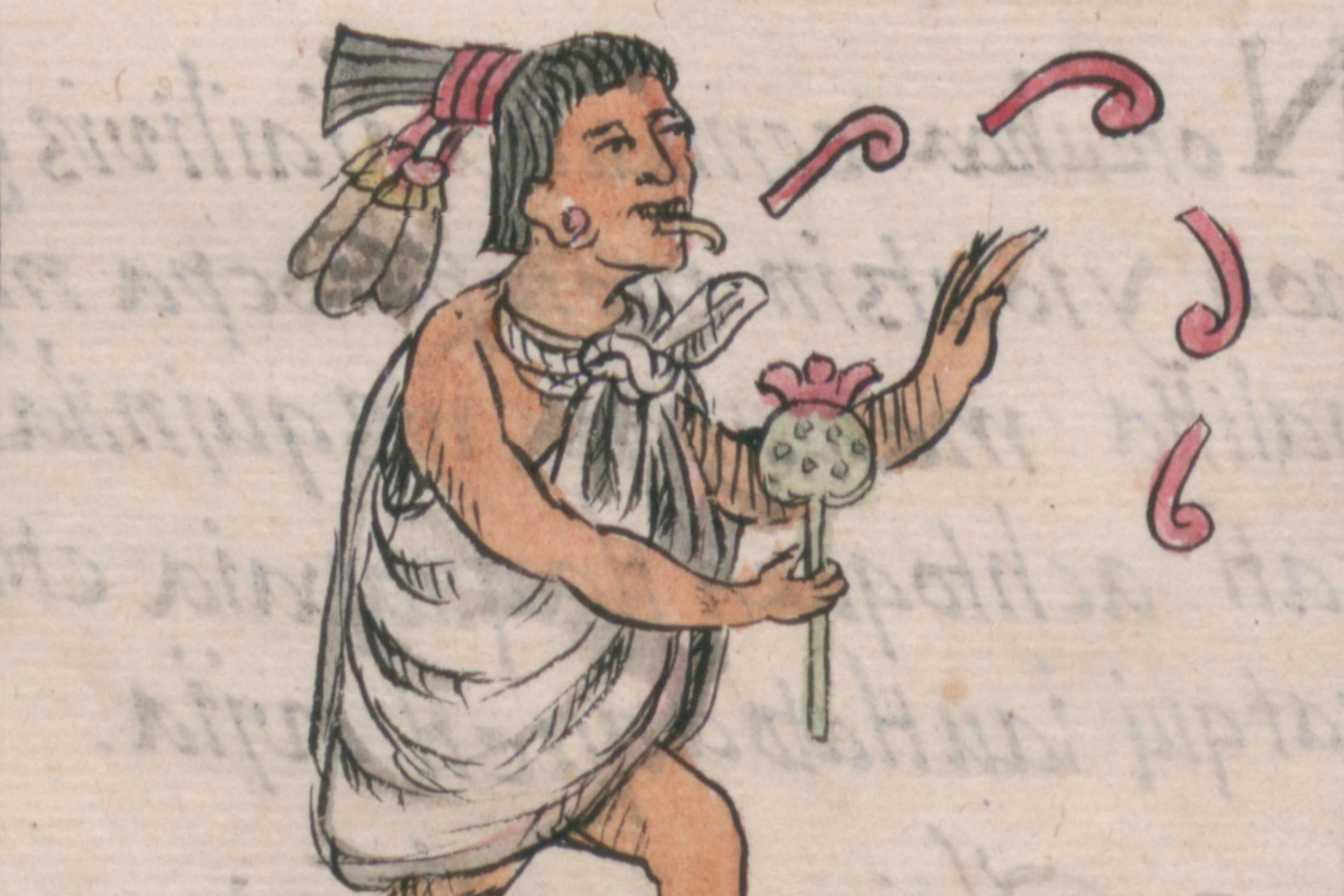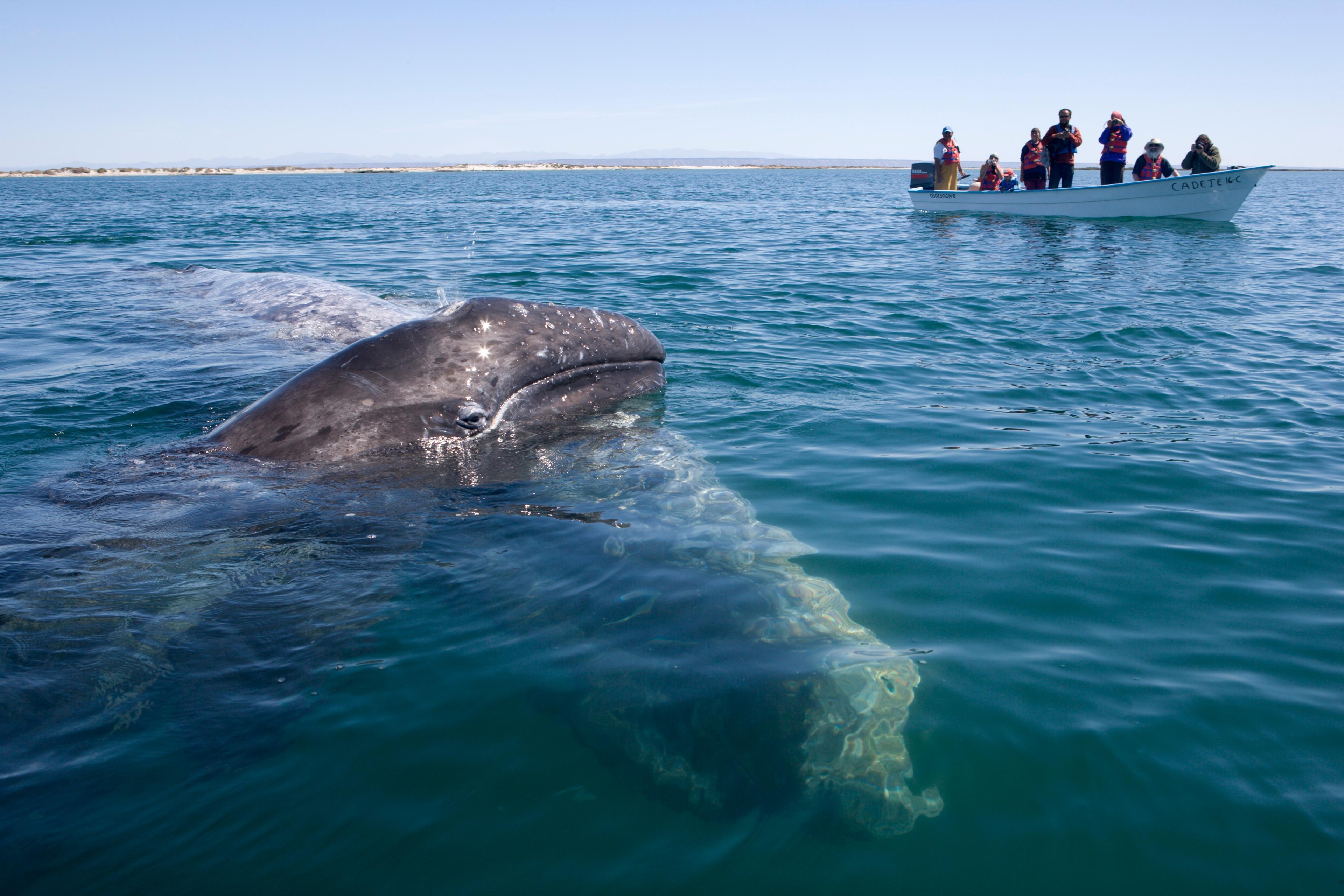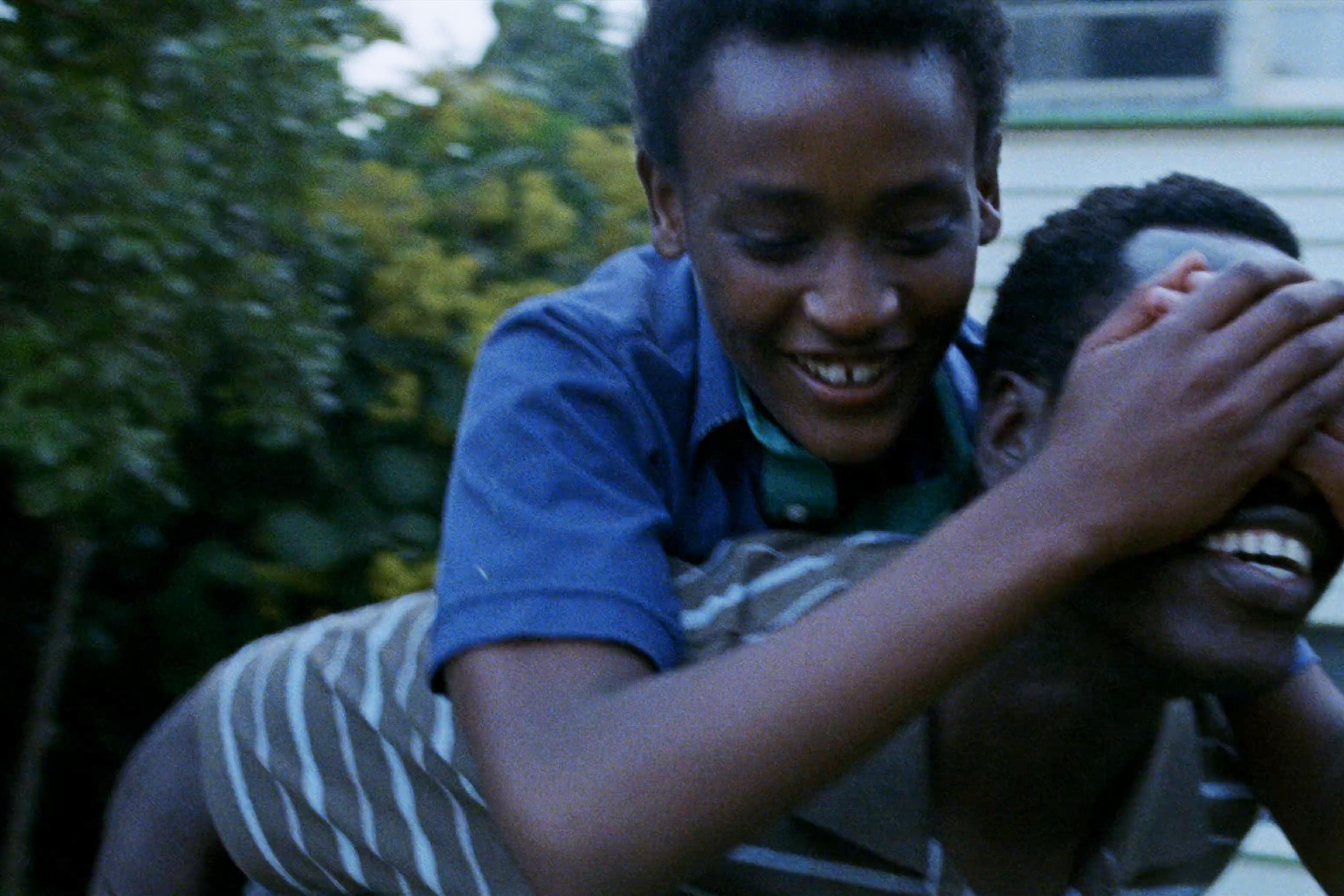‘It is said that the sea is a teacher, who shows man how to live, to fish, and at a set time, to leave the world forever.’
If you’ve ever taken a broken heart for a walk along the beach, or a racing mind for a swim, you will know how clarity can arrive through a simple proximity to water. It isn’t just the cool waters or the sound of waves that bring a sense of peace – perhaps it’s also familiarity. Like us, the sea is calm, angry, wretched, generous; she is a mother, a teacher; she gives and takes. She is rich with metaphors for making sense of human lives. But the sea is unknowable too, alien, capable of extraordinary destruction. In her dance between intimacy and incomprehension, the known and the unknowable, the sea is more god than human.
In the stunning opening scene of this short film by Mexican filmmaker Mariano Rentería Garnica, the viewer soars over the ocean to a choir of angels, towards the sheer cliffs of Punta Cometa or Cerro Sagrado (Sacred Hill), near the village of Mazunte in Oaxaca on the coast of southern Mexico. But this is no ordinary daytrip. As we adopt the viewpoint of a god, and dive deep into local stories and folklore, it feels more like a visitation than a visit. We move between a young girl who sells refreshments to tourists and a young man who fishes and runs turtle-watching tours, to hear tales of the sea so evocative that they take on the colour of mythology.
Punta Cometa is a popular spot for tourists to watch the sun set at the point where land meets the Pacific ocean. The peninsula has a dramatic palette of azure, indigo, rust, brilliant white. It is not hard to understand why, when standing at its point exposes you to the whole sky, an arc of ocean and the horizon, the Cerro is recognised as a ceremonial site, a centre of magic and healing. But as this short film illustrates, healing has two faces – one turned towards pain, the other towards relief. Now known as a site of ecotourism centred around the protection of the magnificent sea turtles that nest on its beaches, Mazunte was once the place of regular massacre. Poachers would hack a living turtle from her shell, dissect her for eggs, while the restaurants put turtle on every menu. After legislation came in to outlaw the killing of sea turtles, the community flipped their reliance on the sea: now, instead of surviving on the turtles’ destruction, they survive on their protection. In the storyteller’s interpretation of the events, the change comes after a great flood decimates the village. ‘It was as if the sea was angry,’ he says, as though a god had issued punishment.
The Mexican poet and environmental activist Homero Aridjis, who was deeply involved in the fight to protect Mazunte’s sea turtles, says:
When I see a river, I see nature. When I see a beautiful tree, I see nature. When I see a human being, I see nature. A mystical manifestation of the glory of God… There is not an activity in the world more important than to defend the spheres of life, to defend nature, because I am defending myself, defending life.
For Aridjis, the boundaries between the divine, the natural and the human are blurred – and when we hurt nature, we hurt God, we hurt ourselves. It’s an insight that, as the planet is choked by environmental crisis, extends far beyond the Oaxacan coast and is more urgent than ever. In Garnica’s film, the ocean carries a lesson: we see that the silver side of pain is relief, that after violence there can be recovery, that in destruction there is the seed of protection. In the Spanish of Mexico’s colonial tongue, the word curar means not only to cure, to heal, but to take care of something. Perhaps we glimpse an opportunity for healing on a larger scale, witnessing how protection has to be at the heart of daily life to enable real change. Perhaps this ancient site of healing alludes not to divine intervention, but to a human one.
We arrive at the Cerro Sagrado as a god to the chorus of angels, but we leave in human form, on foot, wandering through a woodland labyrinth in the dark, pacing to the rhythm of our own breath. ‘We were born in paradise,’ says the narrator. We can’t go back – can we find our way forward?
Written by Nicola Williams







